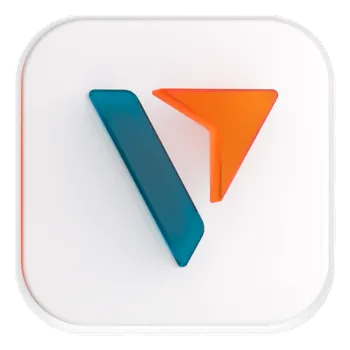When faced with volatility in the financial markets, your first defence against the inevitable is having a well-balanced and diversified portfolio. Diversification of your portfolio can be done in many ways, and one way is to use index funds which offer instant diversification through owning a wide swath of companies in one instrument. Index funds can give you low-cost access to diversified investment.
In this article, we explore what index funds are, how they work and some examples you may consider.
What is an index fund?
An index fund is a type of mutual fund or exchange-traded fund (ETF) that keeps track of a financial market index. A market index, in this context, tracks the performance of a basket of assets representing one sector of the stock market or an economy [1].
While you cannot invest in a market index directly, you can use an index fund to enjoy indirect exposure to the basket of products.
Some common examples of index funds include;
- Dow Jones Index Average (DJIA), which tracks 30 companies with massive market capitalisation.
- Standard & Poor’s 500 Index (S&P 500) — the most popular index fund that consists of the 500 of the largest publicly traded companies in the US.
Read more about mutual funds vs ETFs.
How Index Funds Work
By “indexing”, managers create a passive way of managing funds. A fund manager develops a portfolio that contains the securities found in a certain index, rather than actively selecting stocks.
The manager now no longer has to decide which assets to invest in or plan when to purchase and sell them [2].
The theory behind Index funds is that, by closely matching the profile of the overall stock market or that specific index, the fund will be able to match its performance.
For every financial market that exists, there can be an index for it and a matching index fund. For instance, many popular indexes in the U.S. track the S&P 500.
Check out 6 types of index funds in this article here.
Pros and cons of Index Funds
If you’re thinking about trading index funds, here are some advantages and disadvantages of index funds for you to consider:
Advantages of index funds
- Low expense ratios
- More suitable for long-term returns
- Offer diversification within a single fund, which can help to lower your portfolio risk
- Can be ideal for long-term investors with a risk-averse, passive market sentiment
Disadvantages of index funds
- Their potential returns can be limited over short periods as they are less volatile and prone to price fluctuations compared to other products like forex or stocks
- Market swings and crashes can have heightened negative impact on them given their wider exposure to a specific market index
How to buy index funds?
To buy an index fund, you’ll first need to find an index fund you’re keen to buy. Much like purchasing an ETF, you can buy index funds directly from a mutual fund company (such as Fidelity, BlackRock, Franklin Templeton and more), or via a brokerage.
With Vantage, you can buy and sell indices and ETFs using CFDs.

Top 5 Index Funds
With so many index funds around, how do you find one that fits your portfolio? To help with your research, here are some of the popular index funds you can check out today.
Vanguard S&P 500 (VOO)
The Vanguard S&P 500 index fund follows the behaviour and performance of the popular S&P 500, but in the large capital companies in the U.S [3].
Started in 2010, the index fund got the backing of Vanguard, a big player in the fund management sector. It has an expense ratio of 0.03% for all accounts and offers broad diversification for investors looking to add a well-performing index fund to their portfolios [4]. For example, If you invest $1000, you pay $0.30.
You can subscribe to the index fund online on their website or with most certified brokers.
Index funds similar to Vanguard S&P500 include Schwab S&P 500 Index Fund and Fidelity 500 Index Fund.
iShares Core S&P 500 ETF (IVV)
The IVV is a leading ETF project by BlackRock. It mimics the performance of the S&P 500 index fund [5].
The IVV started tracking the S&P 500 index fund in early 2000. It charges a 0.03% expense ratio, which converts to $30 for every $100,000 invested in the fund annually.
Vanguard Total Stock Market ETF(VTI)
The VTI encompasses a list of top global and publicly traded companies in various sectors, from small to large companies [6].
Vanguard launched the VTI in 2001 as a low-cost index fund to attract investors.
If you partner with Vanguard under the VTI, your annual expense ratio is 0.03%. It’s ideal for all new investors looking for easier way to enter the index fund game at a low cost.
Shelton NASDAQ-100 Index Direct (NASDX).
Introduced in 2000, Shelton NASDAQ-100 Index Direct ETF is a massive index fund mimicking the performance of tech companies listed in the NASDAQ-100 Index.
It has an expense ratio of 0.5% and tracks emerging companies in the tech sector. A $10,000 position in the NASDX costs about $50 as annual fees.
Vanguard Russell 2000 ETF (VTWO)
The Vanguard Russell 2000 ETF, which began in 2010, replicates the behaviour of 2000 small publicly listed companies in the United States of America [7].
The index fund has an expense ratio of 0.10%.
Trade Indices and ETFs with Vantage Markets
New to trading products like CFDs on indices and ETFs that offer instant diversification? Open a demo account with Vantage Markets today and practise your trading strategies. Use our virtual funds to test out the success rate of your strategies in our state-of-the-art platform before putting up real capital for your investments.
Reference
- “Index Fund – Investor.gov”. https://www.investor.gov/introduction-investing/investing-basics/investment-products/mutual-funds-and-exchange-traded-4. Accessed 15 Jan 2023.
- “What Are Index Funds, and How Do They Work? – Investopedia”. https://www.investopedia.com/terms/i/indexfund.asp. Accessed 15 Jan 2023.
- “Vanguard S&P 500 ETF – Vanguard”. https://investor.vanguard.com/investment-products/etfs/profile/voo. Accessed 15 Jan 2023.
- “Vanguard S&P 500 ETF – Investopedia”. https://www.investopedia.com/articles/investing/121814/look-vanguards-sp-500-etf.asp. Accessed 9 March 2023.
- “iShares Core S&P 500 ETF – iShares by BlackRock”. https://www.ishares.com/us/products/239726/ishares-core-sp-500-etf. Accessed 16 Jan 2023.
- “Vanguard Total Stock Market ETF – Vanguard”. https://investor.vanguard.com/investment-products/etfs/profile/vti. Accessed 15 Jan 2023.
- “Vanguard Russell 2000 ETF – Vanguard”. https://investor.vanguard.com/investment-products/etfs/profile/vtwo. Accessed 15 Jan 2023.



